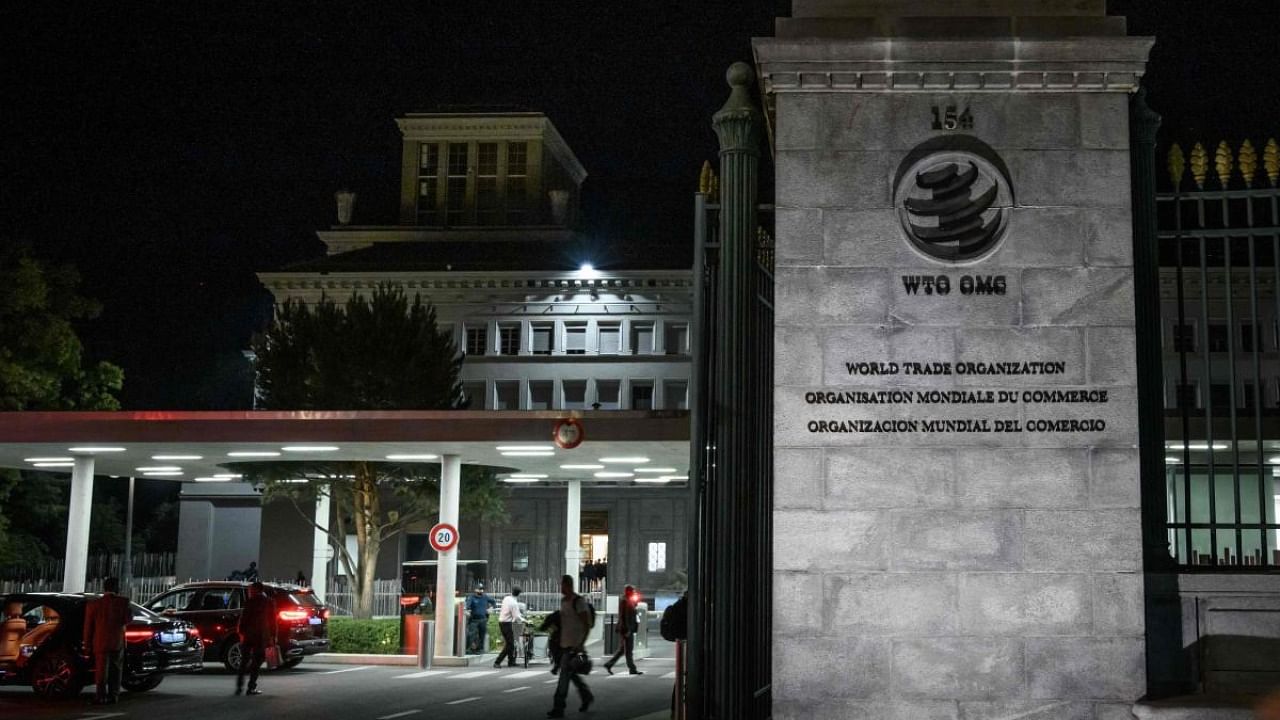
One of the most important achievements for India at the WTO’s 12th ministerial conference is the new agreement on fisheries subsidies. India has been successful in preventing the adoption of the draft fisheries agreement that was under negotiations. The draft agreement of November 24, 2021, if adopted, would have created immense problems for coastal states, exposing to litigation all the subsidies provided to farmers.
Let us see why our negotiators are celebrating.
Article 5 of the draft was the main issue. It required that WTO members shall not give subsidies to “fishing or fishing-related activities that contribute to overcapacity or overfishing”. It then enumerated specific subsidies that, under the agreement, were considered to contribute to overcapacity or overfishing. These included (a) subsidies to construction, acquisition, modernisation, renovation or upgrading of vessels; (b) subsidies to the purchase of machines and equipment for vessels (including fishing gear and engine, fish-processing machinery, fish-finding technology, refrigerators, or machinery for sorting or cleaning fish); (c) subsidies to the purchase/costs of fuel, ice, or bait; (d) subsidies to costs of personnel, social charges, or insurance; (e) income support of vessels or operators or the workers they employ; (f) price support of fish caught; (g) subsidies to at-sea support; (h) subsidies covering operating losses of vessels or fishing or fishing-related activities; and (i) subsidies contingent upon, or tied to, actual or anticipated fishing or fishing-related activities in areas beyond the subsidising member’s jurisdiction (whether solely or as one of several other conditions).
Looking at the list, it is quite evident that it practically covers all the subsidies that may be given to the fishing sector. The provision further went on to state that no subsidies may be provided “outside of the jurisdiction of a coastal member or a coastal non-member and outside the competence of a relevant RFMO/A”. This meant that subsidies given to fishing in the territorial waters were subject to the rider that it should not contribute to overcapacity or overfishing. Since any subsidy could be covered in the above list, a coastal state would have been under legal pressure to demonstrate that a particular subsidy was not leading to overfishing and overcapacity. Most of the developing coastal states would have withdrawn the government support given to the resource-poor fishing sector when faced with endless litigation where the draft agreement had placed the burden of proof for all practical purposes on the defendant.
The agreement that has been adopted at the 12th ministerial conference does not have this clause. Article 5 now states, “No member shall grant or maintain subsidies provided to fishing or fishing-related activities outside of the jurisdiction of a coastal member or a coastal non-member and outside the competence of a relevant RFMO/A.” It only requires that a member “take special care and exercise due restraint when granting subsidies to fishing or fishing-related activities regarding stocks the status of which is unknown”.
The second gain relates to the transition period. The present agreement, like the November 24 draft, prohibits subsidies given to vessels or operators “engaged in illegal, unreported and unregulated (IUU) fishing or fishing-related activities in support of IUU fishing”. Similarly, members are prohibited from granting or maintaining “subsidies for fishing or fishing-related activities regarding an overfished stock”. The provision is the same as was in the November 24 draft. But in the November draft, developing countries, including least developed countries, were allowed to maintain such subsidies for a period of two years for fishing and fishing-related activities up to 12 nautical miles from the baseline, which is the territorial waters of a country.
Under the present agreement, such subsidies can be maintained for up to two years for fishing and fishing-related activities up to the Exclusive Economic Zone, which is 200 nautical miles from the baseline.
In all, it is a fair agreement that integrates the objectives of international agreements relating to fisheries within the WTO without compromising the livelihood of fishermen of less developed countries like India. International agreements like the Agreement Relating to the Conservation and Management of Straddling Fish Stocks and Highly Migratory Fish Stocks and Agreement on Port State Measures to Prevent, Deter and Eliminate Illegal, Unreported and Unregulated Fishing are some of the existing pacts to prevent overcapacity and overfishing with mechanisms to determine overfished stocks.
The present agreement on fisheries subsidies helps in the implementation of these international agreements through the WTO forum. The November 24 draft, if adopted, would have imposed new and additional obligations on the members.
(The writer is Professor, National Law University, Odisha)